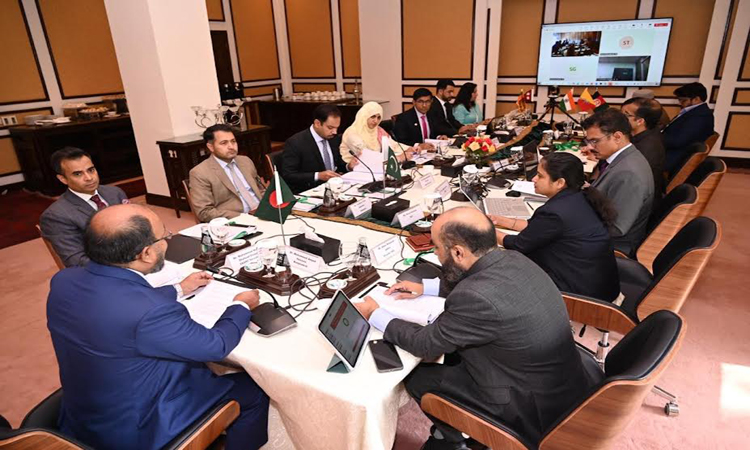News Flash

DHAKA, Sept 30, 2025 (BSS) - The Eighteenth Governing Board meeting of the SAARC Energy Centre (SEC) was held from September 25 to 26 in Islamabad, Pakistan.
The meeting, held in hybrid mode, was attended by the governing board members, representatives of the Ministry of Foreign Affairs of the host country, Pakistan, and officials of the SAARC Secretariat, a press release received here today said.
The chairpersonship of the governing board was formally transferred from the outgoing chair, Bangladesh, to Bhutan. Accordingly, Sonam Tshering, Principal Engineer, Department of Energy, Ministry of Natural Resources, Royal Government of Bhutan, assumed the role of chair and presided over the meeting.
Addressing the meeting on behalf of the Secretary General of SAARC, Waseem Shahzad, Director ETS, SAARC Secretariat, emphasized the critical importance of the governing board's continued empowerment and guidance for the centre.
He underscored that the members' collective wisdom and strategic vision are vital to steering the centre successfully toward the full realization of its mission.
The chair of the governing board, Sonam Tshering, in his address, reaffirmed the mandate entrusted to the SAARC Energy Centre and requested the cooperation of the member states in navigating this process.
Abdul Rasheed Jokhio, Director of the SEC, presented the 2026 budget and briefed the meeting on programme activities undertaken during 2025. He also outlined key challenges and sought the board's guidance and endorsement for the proposed activities for 2026.
The meeting reviewed the centre's programme activities over the past year, the reports of audited accounts prepared by the joint audit team, and the proposed budget for 2026.
The governing board provided comprehensive recommendations concerning the centre's activities, budget, and other operational matters. These recommendations will be presented for consideration at the next programming committee meeting.
The recommendations are aimed at further enhancing the centre's strategic initiatives and ensuring optimal efficacy in programme implementation over the next year.